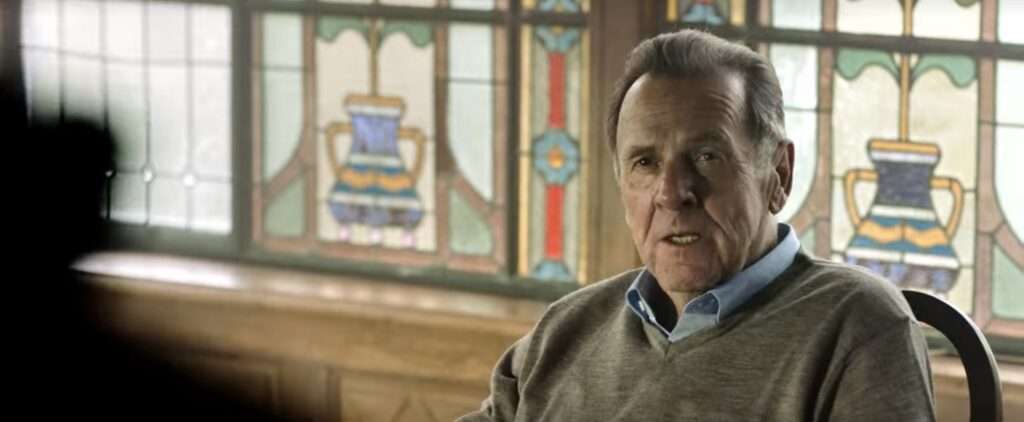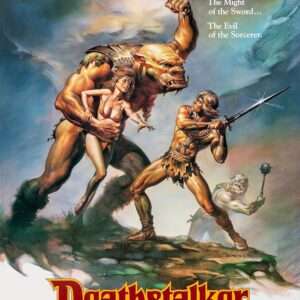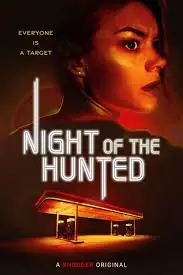SAS: Rise of the Black Swan (originally released as SAS: Red Notice) aims to deliver a slick, high-stakes action thriller rooted in espionage, betrayal, and counterterrorism. With an elite soldier as its lead and a plot centered on a hijacked train speeding through the Channel Tunnel, the film certainly has the ingredients of a gripping ride. However, despite some strong performances and well-executed action sequences, the film stumbles under the weight of its own ambition, often trading character depth for generic genre thrills.
Plot Summary: Terror in the Tunnel
The story follows Tom Buckingham (Sam Heughan), a stoic and highly trained member of the British Special Air Service (SAS). After returning from a black ops mission, Tom plans to propose to his girlfriend, Dr. Sophie Hart (Hannah John-Kamen), during a romantic getaway in Paris. But their plans go awry when the train they’re traveling on is hijacked under the English Channel by a group of ruthless mercenaries led by the cold and calculating Grace Lewis (Ruby Rose).
Grace is the daughter of a notorious family of private military contractors known as the Black Swans—soldiers-for-hire with a track record of covert atrocities. After her father’s assassination in a government betrayal, she turns her sights on revenge and political leverage, threatening to destroy the train and kill hundreds of civilians unless her demands are met.
With the train locked down and government forces scrambling, it’s up to Tom—trapped underground with limited resources—to rescue the passengers, outwit Grace, and stop a national catastrophe.

Action and Pacing: High-Octane, but Familiar
Director Magnus Martens keeps the action sequences tight and fast-paced, with plenty of hand-to-hand combat, gunfights in close quarters, and explosions that echo through the steel corridors of the tunnel. The train setting works well to generate tension and claustrophobia, and the film’s larger scale sequences—such as the ambush in Georgia that opens the movie—are competently staged and appropriately gritty.
However, while the action is p olished, it also feels derivative. The movie leans heavily on familiar tropes: the lone soldier against impossible odds, the ruthless villain with a tragic past, the ticking clock. These elements are entertaining enough, but they rarely surprise. Compared to genre benchmarks like Die Hard or Skyfall, SAS: Rise of the Black Swan feels like it’s playing in a well-worn sandbox without much innovation.

Sam Heughan: A Charismatic but One-Note Lead
Best known for his role in Outlander, Sam Heughan brings physicality and screen presence to the role of Tom Buckingham. He looks the part of an elite soldier—calm under pressure, efficient in combat, and unshakably loyal. But the character is written with such stoicism that it borders on flatness. While Tom is occasionally shown to be emotionally conflicted or vulnerable, these moments are fleeting and not deeply explored.
The film tries to add layers by touching on Tom’s “psychopathy”—a trait supposedly making him the perfect soldier. However, this psychological dimension is mentioned more than it’s meaningfully explored, which feels like a missed opportunity to elevate the character beyond standard action hero fare.
Villains and Supporting Cast: A Mixed Bag
Ruby Rose as Grace Lewis is a striking presence. With her sharp features, icy demeanor, and clipped line delivery, she has all the makings of a memorable antagonist. Yet, despite her charisma, Grace never feels fully realized. The script gives her a backstory rooted in betrayal and ideology, but doesn’t give her enough depth or screen time to flesh out her motivations. She comes off more as a stylized foil than a genuine character.
Andy Serkis, playing the morally compromised government operative George Clements, is one of the highlights of the supporting cast. With his usual intensity and nuance, Serkis adds weight to every scene he’s in—injecting cynicism and ambiguity into an otherwise black-and-white narrative.
Hannah John-Kamen is given little to work with as Sophie Hart. The girlfriend-in-peril trope feels outdated, and though the script tries to present her as independent and intelligent, she spends most of the film reacting to Tom’s heroics rather than participating meaningfully in the story.

Themes and Tone: Moral Ambiguity, Lightly Sketched
Based on the novel by former SAS operative Andy McNab, the film makes attempts at grappling with themes of state-sponsored violence, the privatization of war, and the psychological toll of special forces work. There are fleeting moments when the script seems to ask: what separates terrorists from operatives when both operate in the shadows and leave destruction in their wake?
But these questions are posed more as passing thoughts than explored dilemmas. The story often defaults back to standard action movie logic—hero good, villain bad, bullets fly—leaving its more complex ideas underdeveloped. Had the film leaned further into its moral ambiguity, it might have found a more compelling identity.
Production and Visuals: Slick but Generic
The production values are solid, with sharp cinematography and convincing set design—especially inside the train. The lighting, staging, and editing during action scenes are clean and coherent, a welcome change from the shaky-cam chaos that plagues many modern thrillers.
That said, there’s a noticeable lack of visual personality. The film looks like it was designed to blend in with other streaming-era action titles, rather than stand out. It’s technically proficient, but not visually memorable.
Overall Impact: Watchable, But Lacking in Depth
SAS: Rise of the Black Swan is not a bad film—it delivers action, suspense, and a few solid performances. It’s exactly the kind of mid-budget thriller that’s easy to throw on during a weekend evening. But it could have been more. With a more daring script and richer character development, the film might have risen above the flood of similar titles.
For fans of military thrillers or action films with European flavor, there’s enough here to enjoy. But those looking for deeper drama or narrative innovation may find themselves disengaged once the bullets stop flying.
Final Verdict: 6.5/10
SAS: Rise of the Black Swan is an efficient but formulaic action thriller, elevated by Sam Heughan’s commanding presence and a few standout moments from Andy Serkis and Ruby Rose. It’s stylish and slick, but emotionally undercooked—delivering surface-level thrills without the depth or originality needed to make a lasting impact. It’s a ride worth taking for action fans, but not one that lingers in the mind after the credits rol





